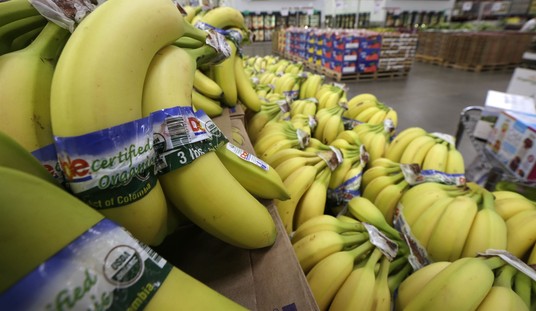Randye Hoder (yes, that’s the actual spelling) has a bit of navel gazing at Time this week regarding her daughter’s choice of schools and academic pursuits. On the surface it looks like a fairly valid discussion of an important topic; what sort of education should your child pursue and how will it help them establish a career and a shot at success? But as you read through it the real substance of the article is quite different, though college grads are forced to deal with it every year.
The bright spot, according to the Fed analysis, students who majored in STEM (Science, Technology, Engineering and Mathematics—areas in which recent graduates “have tended to do relatively well, even in today’s challenging labor market.” But Emma is a student of the much-maligned humanities—an American Studies major with a focus on the politics and culture of food at a small liberal arts school.
For quite a while, I tripped all over myself to describe how her field of study is so trendy right now that I’m not the least bit worried she will find a decent job. “Emma’s concentration and interests could lead her in any number of directions,” I would tell people. “Writing for a food blog. Working at a nonprofit that improves health and nutrition for the urban poor. Managing social media for a food-related startup.”
Hoder’s biggest concern, expressed in her own essay, was how people would judge her and her parenting skills if her daughter wound up stocking shelves at Best Buy after spending a significant fortune on her American Studies humanities degree. This is rationalized by explaining that the real benefit of this college experience was to ensure that she learned, “to think critically and analytically, read widely and write well.”
Stacy McCain found it all a bit rife with sniffing one’s own gaseous emissions, particularly after reading that the Hoders will be paying off their daughter’s college loans and even having her move back home if she can’t land a job with that sheepskin.
Oh, now I see! Mommy and Daddy will pay the bill for their daughter’s luxurious four-year-vacation — “the kind of education we value” — because their Special Snowflake (a) didn’t have the scores to get into Berkeley, and (b) Cal State’s for losers.
See, this is the niche that “small liberal arts schools” fill: The offspring of permissive parents who will give their Special Snowflakes whatever their selfish hearts crave. The kid isn’t smart enough or hard-working enough to get into a genuinely elite school, but they’re just too doggone special to attend a state school (let alone community college), and so there’s always that trendy little campus that will charge them $35,000 a year to pretend that they’re better than those disgusting low-brow slobs at State U.
This is not about education, it’s about aspiration.
The “small liberal arts school” is a luxury that the rich can afford, but borrowing money to attend one? That’s just crazy.
I don’t have enough data on the Hoders’ personal finances or their daughter’s high school transcripts to know how much that applies, but for many families around the country it certainly has the ring of truth. Hoder’s “explanation” for the decisions they made certainly has the ring of an entitlement mentality and a general disdain for the realities of life. That really comes through in this brief snippet:
But from the beginning, we never urged her to pick a college or a major with an eye on its expected return on investment, as more and more families are doing.
That rather sarcastic, chiding jab at the idea of students (and parents) seeking a reasonable “return on investment” for the child’s college education says a lot. How is it in any way a negative mark on the family to expect that they get something of lasting value out of their college degree? For the majority of graduate students, the amount of money they will spend on a four year degree will be the largest single investment they will ever make, greater than the cost of their nicest car or their first home. And if you want your children to be critical thinkers who read a lot and write well, aren’t these personality traits which you should be instilling in them from their earliest years, rather than expecting some set of professors to suddenly hammer these proclivities into them after they are fully formed adults?
Some people will benefit greatly from college, particularly if their field of study is in demand in the marketplace after they graduate. But not everyone has to get a particular set of letters after their signature to be a success. Both the military and the trades are still perfectly viable options which should garner a lot more respect than they do in the media, and you come out of them with a lot less (or no) debt. Want to be out of the red and building a career early on? Learn to weld. Or to service heating and air conditioning systems. For those who don’t look down their nose at getting a little dirty during a hard day’s work, opportunity still exists out there. And when your pipes freeze and blow out on a cold frozen night, you’re not going to be cruising the yellow pages looking for somebody with expertise in the politics and culture of food .







Join the conversation as a VIP Member